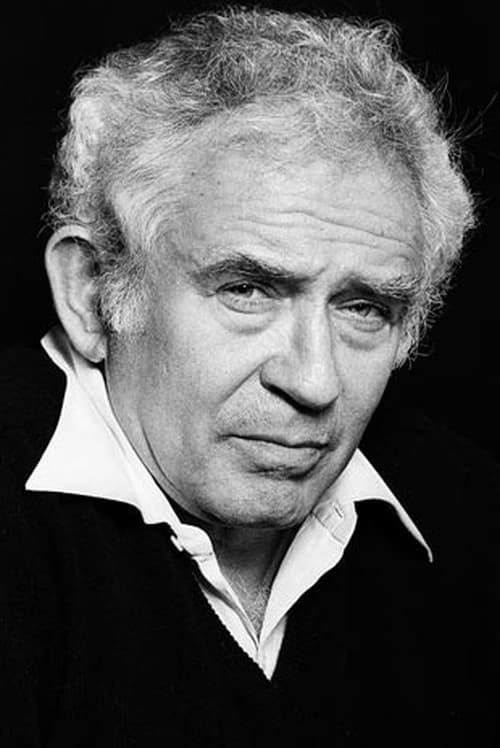
Norman Mailer
Birth : 1923-01-31, Long Branch, New Jersey, USA
Death : 2007-11-10
History
Norman Kingsley Mailer (January 31, 1923 – November 10, 2007) was an American novelist, journalist, essayist, playwright, activist, filmmaker and actor. In a career spanning over six decades, Mailer had 11 best-selling books, at least one in each of the seven decades after World War II—more than any other post-war American writer.
His novel The Naked and the Dead was published in 1948 and brought him early renown. His 1968 nonfiction novel Armies of the Night won the Pulitzer Prize for non-fiction as well as the National Book Award. His best-known work is widely considered to be The Executioner's Song, the 1979 winner of the Pulitzer Prize for fiction.
Mailer is considered an innovator of "creative non-fiction" or "New Journalism", along with Truman Capote, Joan Didion, Hunter S. Thompson, and Tom Wolfe, a genre which uses the style and devices of literary fiction in factual journalism. He was a cultural commentator and critic, expressing his views through his novels, journalism, frequent press appearances and essays, the most famous and reprinted of which is "The White Negro". In 1955, he and three others founded The Village Voice, an arts and politics-oriented weekly newspaper distributed in Greenwich Village.
In 1960, Mailer was convicted of assault and served a three-year probation after he stabbed his wife Adele Morales with a penknife, nearly killing her. In 1969, he ran an unsuccessful campaign to become the mayor of New York. Mailer was married six times and had nine children.
Description above from the Wikipedia article Norman Mailer, licensed under CC-BY-SA, full list of contributors on Wikipedia.
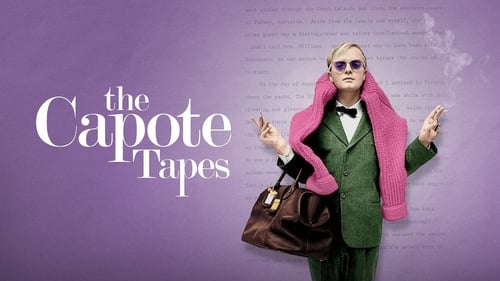
Self (voice) (archive footage)
Newly discovered interviews with friends of Truman Capote made by Paris Review co-founder George Plimpton invigorate this fascinating documentary on the author (and socialite) behind Breakfast at Tiffany’s and In Cold Blood, while situating Capote in the 20th-century American literary canon.

Self
Pauline Kael (1919–2001) was undoubtedly one of the greatest names in film criticism. A Californian native, she wrote her first review in 1953 and joined ‘The New Yorker’ in 1968. Praised for her highly opinionated and feisty writing style and criticised for her subjective and sometimes ruthless reviews, Kael’s writing was refreshingly and intensely rooted in her experience of watching a film as a member of the audience. Loved and hated in equal measure – loved by other critics for whom she was immensely influential, and hated by filmmakers whose films she trashed - Kael destroyed films that have since become classics such as The Sound of Music and raved about others such as Bonnie and Clyde. She was also aware of the perennial difficulties for women working in the movies and in film criticism, and fiercely fought sexism, both in her reviews and in her media appearances.

Himself
Follows the waves of literary, political, and cultural history as charted by the The New York Review of Books, America’s leading journal of ideas for over 50 years. Provocative, idiosyncratic and incendiary, the film weaves rarely seen archival material, contributor interviews, excerpts from writings by such icons as James Baldwin, Gore Vidal, and Joan Didion along with original verité footage filmed in the Review’s West Village offices.

Self (archive footage)
A provocateur, a rebel, a performer, and a true American, Norman Mailer never stopped giving people something to talk about. This documentary goes beyond the Mailer of the bookshelves and NY Times best seller list to Mailer the social critic, family man, filmmaker, and lover. Here's a look into the life of a complex, intellectual, working class hero. With never before seen footage of Adele Morales Mailer's startling revelations after being stabbed by her husband. Featuring unseen footage and interviews from wives and lovers, enemies and admirers, his children and the man himself.

Though Henry Kissinger is often giving short statements to the media, he refuses detailed interviews about his own life. Now he has agreed to answer questions about his person in an extensive documentary.

Self
Nicholas Jarecki follows director James Toback on the 12-day shoot of his thriller, When Will I Be Loved -- a movie made without a script or distribution deal.
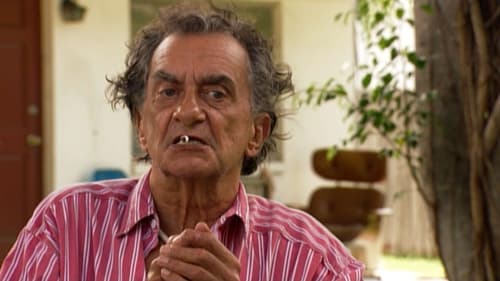
Self
In 1972, a seemingly typical shoestring budget pornographic film was made in a Florida hotel, "Deep Throat," starring Linda Lovelace. This film would surpass the wildest expectation of everyone involved to become one of the most successful independent films of all time. It caught the public imagination which met the spirit of the times, even as the self appointed guardians of public morality struggled to suppress it, and created, for a brief moment, a possible future where sexuality in film had a bold artistic potential. This film covers the story of the making of this controversial film, its stunning success, its hysterical opposition along with its dark side of mob influence and allegations of the on set mistreatment of the film's star.

Self (archive footage)
A contrarian and wickedly funny man, "The Education of Gore Vidal" explores Vidal's extraordinary life and work, joining him at his cliff-side villa in Ravello, Italy.

Self (archive footage)
A documentary about the film, I am Curious-Yellow (1967), and how it made it into the USA and changed film in USA forever by breaking the USA Obscenity Codes.

Executive Producer
True story about the cat and mouse game between the FBI trying to find a Soviet mole in their ranks and Robert Hanssen, one of the top FBI agents and said mole

Writer
True story about the cat and mouse game between the FBI trying to find a Soviet mole in their ranks and Robert Hanssen, one of the top FBI agents and said mole

Himself
New York in the Fifties is the story of a unique time and place, when New York was the hotbed of new artistic expressions, free love, drinking, hot jazz, and radical politics.
The film combines stunning archival footage of New York with interviews and footage of icons of the day-Kerouac, Ginsberg, Baldwin, Mailer, Basie, etc. Offering modern day perspective and reminiscences are writers, actors, and artists such as Joan Didion, Robert Redford, Nat Hentoff, Gay and Nan Talese, John Gregory Dunne, William F. Buckley, and Calvin Trillin-all part of the rich cultural and artistic scene of the time. Based on the best-selling book by Dan Wakefield, the film also traces Wakefield's restless rebellion in conformist Indianapolis, and his escape to New York with dreams of writin ga novel, falling in love, meeting like-minded souls and questioning the meaning of life.

Himself
Documentary produced and broadcast in the show "Court Circuit" on Arte.

Writer
Johnnie Cochran defends O.J. Simpson who is on trial for his wife's murder.

Himself
Norman Mailer profiles life in America since the Second World War. Farewell to the Fifties. Mailer fought for his country in the Second World War- an experience that inspired his novel The Naked and the Dead. But, disappointed by post-war America, he grew to despise the fifties.

In 1955, Tobias Schneebaum disappeared into the depths of the Peruvian Amazon. He had no guide, no map, and only the vaguest of instructions: Keep the river on your right. A year later Schneebaum emerged from the jungle…naked, covered in body paint, and a modern-day cannibal. Titled after Schneebaum’s 1969 cult classic memoir about his formative experiences living in the Amazon, Keep The River On Your Right is the extraordinary stranger-than-fiction story of Schneebaum’s return to the jungle, 45 years after his original visit, to reunite with the very tribesmen he loved and who gave him nightmares for nearly half a century. A deeply affecting and searing portrait, sibling filmmakers Laurie and David Shapiro capture a man in utter conflict, a fearless adventurer, and one of the most charming, enigmatic, and perplexing men ever captured on screen.

Himself
Norman Mailer frankly discusses American culture, politics, literature, and his own tumultuous life.
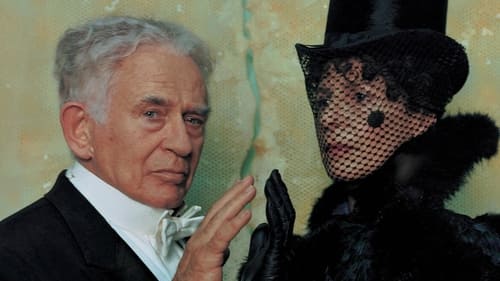
Harry Houdini
CREMASTER 2 (1999) is rendered as a gothic Western that introduces conflict into the system. On the biological level it corresponds to the phase of fetal development during which sexual division begins. In Matthew Barney's abstraction of this process, the system resists partition and tries to remain in the state of equilibrium imagined in Cremaster 1 ...
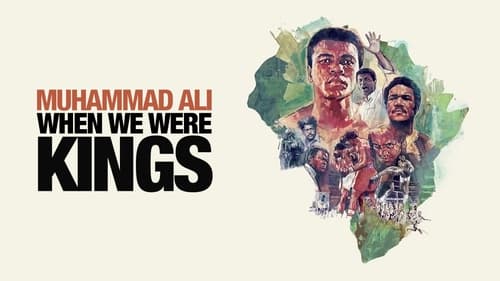
Self
It's 1974. Muhammad Ali is 32 and thought by many to be past his prime. George Foreman is ten years younger and the heavyweight champion of the world. Promoter Don King wants to make a name for himself and offers both fighters five million dollars apiece to fight one another, and when they accept, King has only to come up with the money. He finds a willing backer in Mobutu Sese Suko, the dictator of Zaire, and the "Rumble in the Jungle" is set, including a musical festival featuring some of America's top black performers, like James Brown and B.B. King.

Interviewed
Malga Kubiak stars in her exploration of sex and self. One woman's love to her own body interlaced with maggots; mixes x-rated porn. Voyeuristically titillating this avant-garde study of horrors of sex.
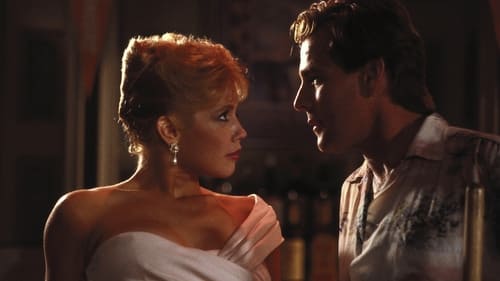
Writer
Writer, ex-con and 40-something bottle-baby Tim Madden, who is prone to black-outs, awakens from a two-week bender to discover a pool of blood in his car.

Director
Writer, ex-con and 40-something bottle-baby Tim Madden, who is prone to black-outs, awakens from a two-week bender to discover a pool of blood in his car.
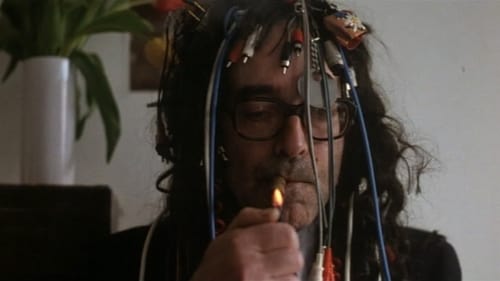
The Great Writer (uncredited)
A descendant of Shakespeare tries to restore his plays in a world rebuilding itself after the Chernobyl catastrophe obliterates most of human civilization.

Writer
A descendant of Shakespeare tries to restore his plays in a world rebuilding itself after the Chernobyl catastrophe obliterates most of human civilization.
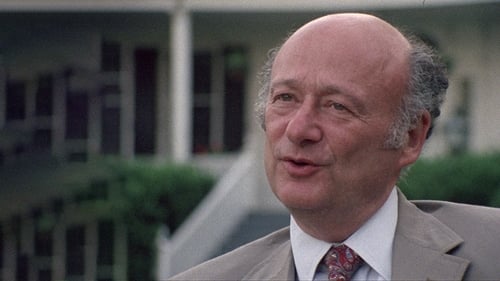
Himself
Guided by seasoned New Yorkers, political figures, and cultural connoisseurs, "Empire City" examines Manhattan and its surrounding boroughs in order to paint a portrait of the ever-evolving metropolis. Appearing to be both adaptable and stubbornly stagnant, New York is a city of juxtapositions. As our narrator notes, "The city is too big, too diverse, and too complex for anyone to comprehend. New York is many cities interlaced with one another, each in constant independent motion."
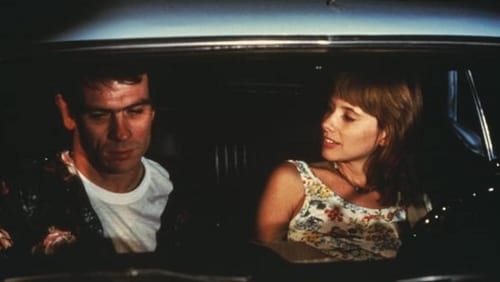
Writer
In this fact-based made-for TV film, Gary Gilmore, an Indiana man who just finished serving a lengthy stay in prison, tries to start anew by moving to Utah. Before long, Gary begins an ill-advised romance with the troubled Nicole Baker, a teenage single mother. As their relationship quickly deteriorates, Gary goes on a murderous rampage, leaving two dead. During his trial, he demands capital punishment; a media circus ensues and outsiders look to profit from his story.

Stanford White
A young black pianist becomes embroiled in the lives of an upper-class white family set among the racial tensions, infidelity, violence, and other nostalgic events in early 1900s New York City.
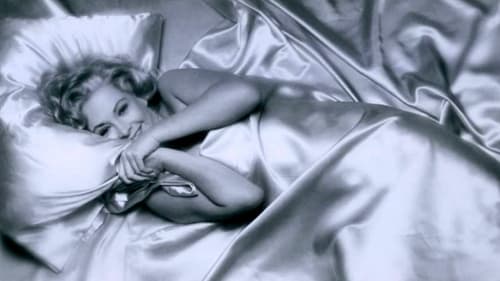
Book
The story of the life and times of the legendary Hollywood blonde bombshell, Marilyn Monroe, from her meteoric rise to stardom to her marriages and untimely death.
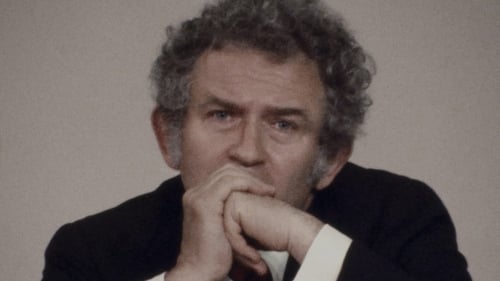
Himself
Norman Mailer and a panel of feminists — Jacqueline Ceballos, Germaine Greer, Jill Johnston, and Diana Trilling — debate the issue of Women's Liberation.

Utitlising humour, fantasy, animation, poetry and theatrics, Hochman and her crew challenge the male establishment for ignoring the first meeting of the National Women's Political Caucus and Shirley Chisholm's bid for US vice-president.
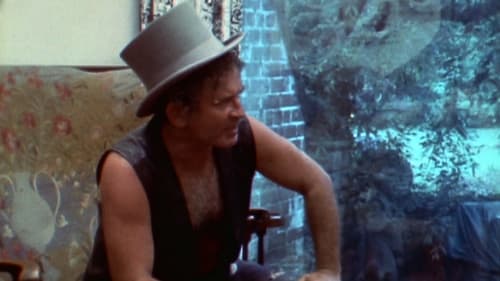
Producer
Over a booze-fueled, increasingly hectic five-day shoot in East Hampton, Norman Mailer and his cast and crew spontaneously unloaded onto film the lurid and loony chronicle of U.S. presidential candidate and filmmaker Norman T. Kingsley debating and attacking his hangers-on and enemies. This gonzo narrative, “an inkblot test of Mailer’s own subconscious” (Time), becomes something like a documentary on its own making when costar Rip Torn breaks the fourth wall in one of cinema’s most alarming on-screen outbursts.

Writer
Over a booze-fueled, increasingly hectic five-day shoot in East Hampton, Norman Mailer and his cast and crew spontaneously unloaded onto film the lurid and loony chronicle of U.S. presidential candidate and filmmaker Norman T. Kingsley debating and attacking his hangers-on and enemies. This gonzo narrative, “an inkblot test of Mailer’s own subconscious” (Time), becomes something like a documentary on its own making when costar Rip Torn breaks the fourth wall in one of cinema’s most alarming on-screen outbursts.

Norman T. Kingsley
Over a booze-fueled, increasingly hectic five-day shoot in East Hampton, Norman Mailer and his cast and crew spontaneously unloaded onto film the lurid and loony chronicle of U.S. presidential candidate and filmmaker Norman T. Kingsley debating and attacking his hangers-on and enemies. This gonzo narrative, “an inkblot test of Mailer’s own subconscious” (Time), becomes something like a documentary on its own making when costar Rip Torn breaks the fourth wall in one of cinema’s most alarming on-screen outbursts.

Director
Over a booze-fueled, increasingly hectic five-day shoot in East Hampton, Norman Mailer and his cast and crew spontaneously unloaded onto film the lurid and loony chronicle of U.S. presidential candidate and filmmaker Norman T. Kingsley debating and attacking his hangers-on and enemies. This gonzo narrative, “an inkblot test of Mailer’s own subconscious” (Time), becomes something like a documentary on its own making when costar Rip Torn breaks the fourth wall in one of cinema’s most alarming on-screen outbursts.

One of the human trio is Dick Fontaine, the director, a thin, long-haired youth who has put together this highly personal exercise on something or other that runs, mercifully, for 58 minutes and comes from an English group of movie folk called the Tattooists. The second visitor to the animal abattoir is a pretty girl. The third is a porky, middle-aged man addicted to the expression, "Ya know?"
The two men carry on a running argument about whether they should make a picture about pigs. "Are we making a movie, ya know?" says Fatso. "Where is it, ya know?" Then a bit later: "I'm making a movie about pigs, ya know?"
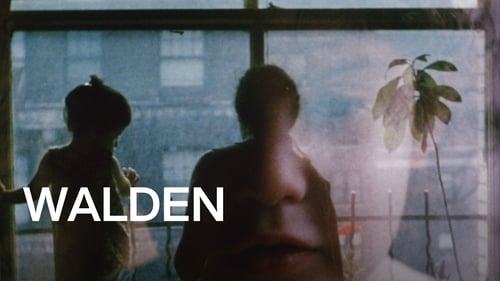
Self
An epic portrait of the New York avant-garde art scene of the 60s.

Lt. Francis Xavier Pope
Takes place over the course of one feverish night in a Manhattan police precinct and neighboring bar.

Director
Takes place over the course of one feverish night in a Manhattan police precinct and neighboring bar.

Editor
Norman Mailer’s first feature filmmaking effort stars the director and his two longtime collaborators Buzz Farbar and Mickey Knox as a trio of gangsters holed up in a ramshackle New York apartment, drinking, braying, and fighting.

Producer
Norman Mailer’s first feature filmmaking effort stars the director and his two longtime collaborators Buzz Farbar and Mickey Knox as a trio of gangsters holed up in a ramshackle New York apartment, drinking, braying, and fighting.

Prince
Norman Mailer’s first feature filmmaking effort stars the director and his two longtime collaborators Buzz Farbar and Mickey Knox as a trio of gangsters holed up in a ramshackle New York apartment, drinking, braying, and fighting.

Director
Norman Mailer’s first feature filmmaking effort stars the director and his two longtime collaborators Buzz Farbar and Mickey Knox as a trio of gangsters holed up in a ramshackle New York apartment, drinking, braying, and fighting.

Self
Portrait of Norman Mailer at the time of the Pentagon demonstrations in 1967, documenting Mailer's involvement and arrest, together with two TV appearances and shooting on the set of his second film 'Beyond the Law'.

Novel
Stephen Rojack is a decorated war vet who has now found success as an outspoken television personality. During a vicious argument with his wife, Deborah, Stephen snaps and pushes her from his high-rise apartment to her death. He manages to convince the authorities that she killed herself, then reignites an old affair with singer Cherry McMahon -- which doesn't sit well with her jealous mobster boyfriend, Nicky.
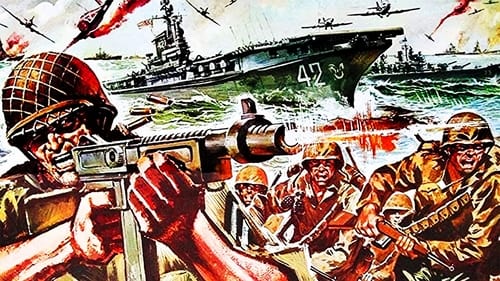
Novel
Fighting men in World War II learn the value of courage and quickness at the risk of losing their lives.

Editor
Novelist Norman Mailer’s assured first foray into surrealist cinema, starring Millicent Brower.

Director
Novelist Norman Mailer’s assured first foray into surrealist cinema, starring Millicent Brower.

















